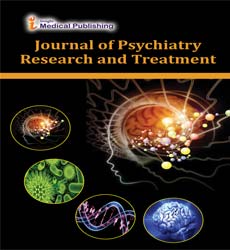Schizophrenia Neurology and Neurological Disorders
Abstract
Hematopoietic stem and progenitor cells (HSPCs) are the key regulators of hematopoiesis which give rise to different, mature and committed lineages. Exposure to acute whole -body radiation results in the loss of HSPCs leading to the inabilityofthe systemtogenerate differentiatedlineages whichultimatelycausehematopoietic formofacute radiation syndrome (hs-ARS). Currently no safe and effective molecule as a radiation countermeasure is available for human applications.Due tothis bonemarrowtransplantation(BMT)has become anindispensable strategyforthemanagement of radiation over-exposed victims, hematopoietic malignancies and planned chemotherapy induced bone marrow depression. Several strategies have been employed to achieve successful Hematopoietic stem cell transplantation (HSCT), capable of enhancing HSC homing and engraftment potential but at a high cost. Here in this study, we have reported an inexpensive strategy involving short-term ex-vivo exposure of bone marrow mononuclear cells (BMMNCs) to a small molecule which successfully enhances the HSPCs proliferation, migration and homing to its BM niche after transplantation. Results indicate that ex-vivo exposure led to a significant increase in CXCR4 expression and migration ofHSPCs towards SDF-1α as evident from in-vitrostudies. In-vivo data displayed that ex-vivo exposure of BMMNCs with the molecule resulted in a significantincrease inthe number of homed cells to the BM niche as compared to the vehicle treated group. Hence, the above strategy suggests an efficient and cost-effective method for achieving successful HSC transplantation for a variety ofscenarios including management of hs-ARS.
Open Access Journals
- Aquaculture & Veterinary Science
- Chemistry & Chemical Sciences
- Clinical Sciences
- Engineering
- General Science
- Genetics & Molecular Biology
- Health Care & Nursing
- Immunology & Microbiology
- Materials Science
- Mathematics & Physics
- Medical Sciences
- Neurology & Psychiatry
- Oncology & Cancer Science
- Pharmaceutical Sciences
